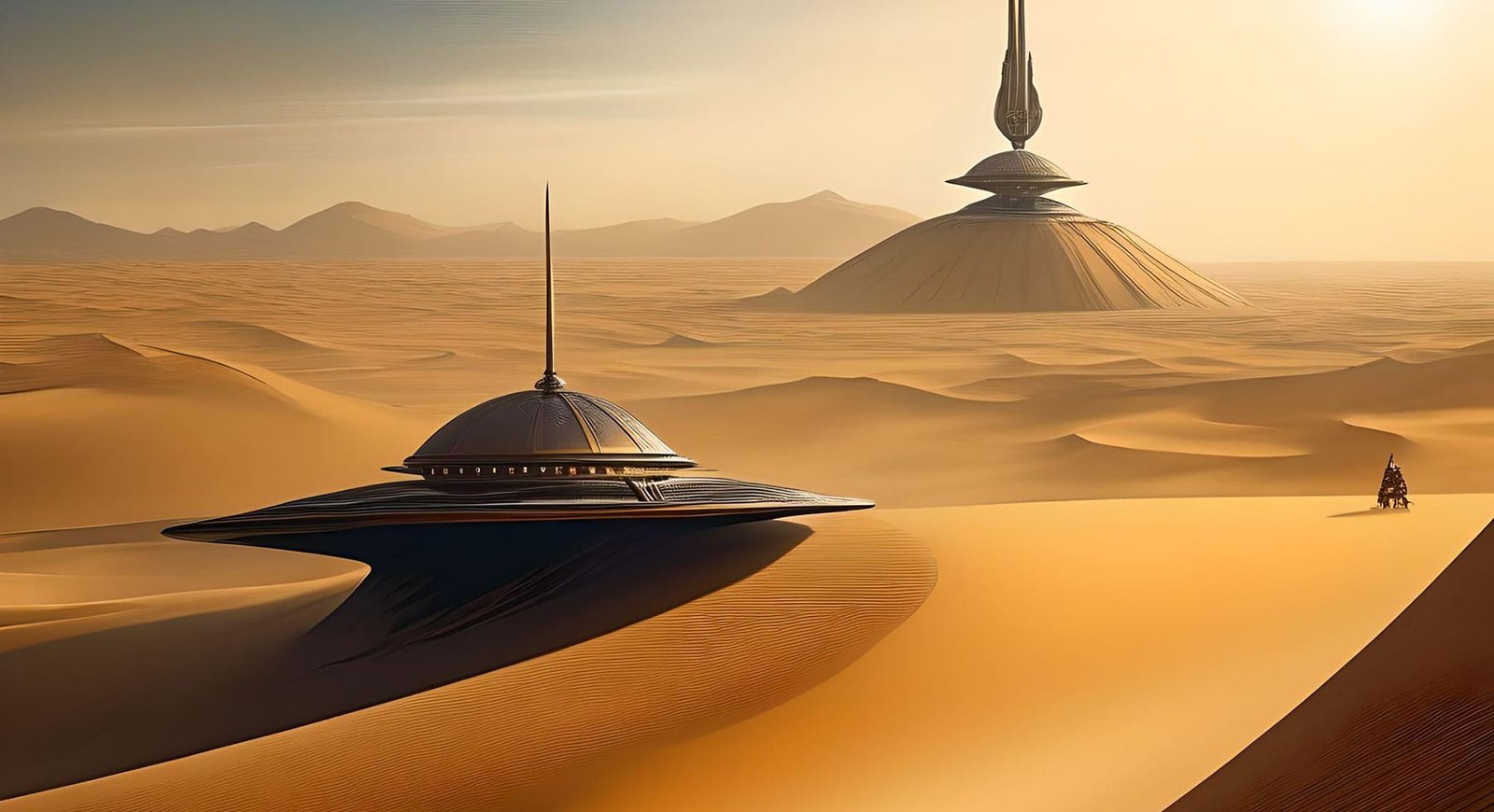With the impending release of Denis Villeneuve’s movie adaptation, Frank Herbert’s Dune is once again on the tip of everyone’s tongues. For some, it’s a cinematic universe shrouded in desert sands and political intrigue, while others see a sprawling narrative questioning the very nature of power and destiny. No matter how one approaches Dune, it’s undeniably an epic that has left an indelible mark on the tapestry of science fiction.
In this comprehensive exploration, we will travel through the forbidden deserts of Arrakis and the labyrinthine intrigues of the Atreides and the Harkonnens. We’ll discuss why Dune continues to captivate the imaginations of readers and viewers, decades after its creation. Our journey will span from the seminal texts penned by Frank Herbert to the intricate filmography inspired by the Dune universe.
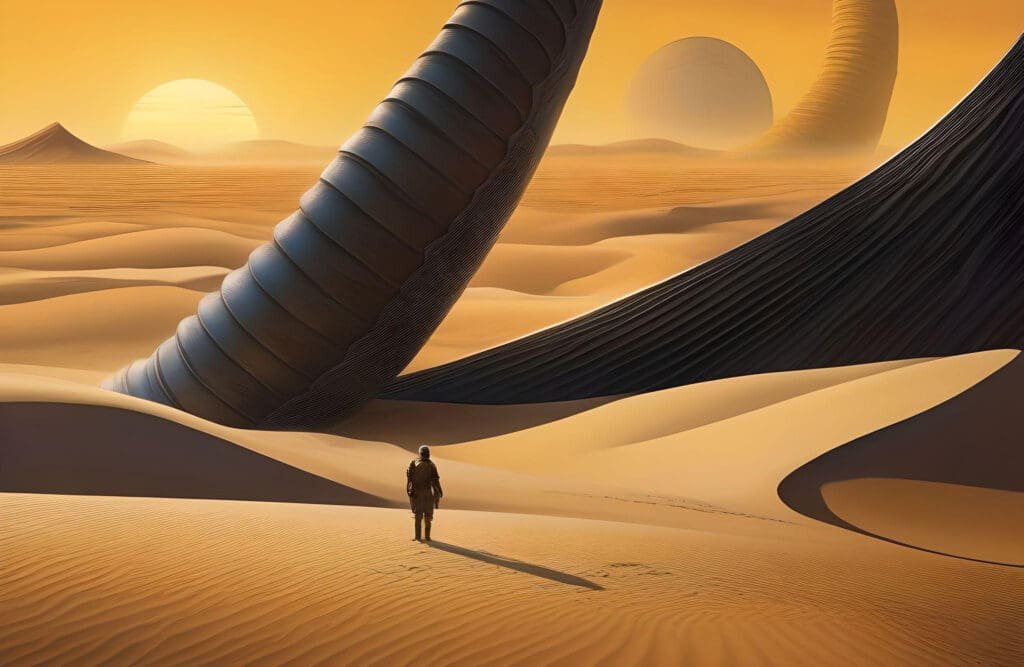
The Roots of Dune: Frank Herbert’s Literary Epic
The heart of Dune lies in the deceptively simple narrative of Paul Atreides and his transformation into the messianic figure known as Muad’Dib. However, to understand Dune fully, one must grasp the layers of political commentary, religious allegory, and ecological reflections that Herbert wove into the tapestry of his narrative.
World-Building Mastery
Herbert’s genius was in creating a world so vast and detailed that it felt real. The Sietches of the Fremen, the intricate ecology of Arrakis, and the power struggles of the Great Houses were all part of a living, breathing universe meticulously constructed by Herbert. Unlike many sci-fi works of the time, Herbert’s world did not rely on simplistic hierarchies or technobabble. Instead, it was a reflection of the complex forces that shape all societies.
The Characters and Their Journeys
Beyond its world-building prowess, Dune’s appeal stems from the complex characters that populate its pages. Paul Atreides, his mother Jessica, the Sardaukar, the Bene Gesserit, and the enigmatic sandworms are all part of a grand narrative that weaves personal struggles into the broader theme of human evolution.
Themes and Commentary
The themes of ecology, adaptation, and the cost of heroism echo profoundly within the Dune saga. Herbert was ahead of his time in emphasizing the interdependence of life forms and the limitations of natural resources. The narrative offers a critique of the shortsightedness of humanity, warning of the perils of ecological devastation in the quest for power and wealth.
Dune’s Influence on Science Fiction
Dune’s impact on science fiction is immeasurable. It inspired generations of writers and creators to push the boundaries of the genre, exploring new frontiers of narrative complexity and thematic depth.
Eco-Fiction Before Its Time
In today’s world, where climate change is at the forefront of global discourse, Dune’s message resonates more than ever. It was arguably the first major work of science fiction to bring ecological themes into the mainstream of the genre. The story’s central concept—Arrakis as an arid, unforgiving desert planet—sparked conversations about the delicate balance of ecosystems and the dire consequences of their disruption.
Geopolitics and Governance
Herbert’s intricate depiction of interstellar politics and complex power dynamics resonated with readers as a reflection of our own geopolitical struggles. The parallels between the Great Houses’ maneuverings and the realpolitik of our world provided a rich ground for exploring themes of empire and leadership.
From Page to Screen: The Cinematic Odyssey
Dune’s transition from page to screen has been a storied one, with David Lynch’s 1984 adaptation offering an early vision that divided audiences and critics. Now, Villeneuve’s vision looks to bring a new level of fidelity to Herbert’s opus, promising to honor the source material while delivering a modern cinematic experience.
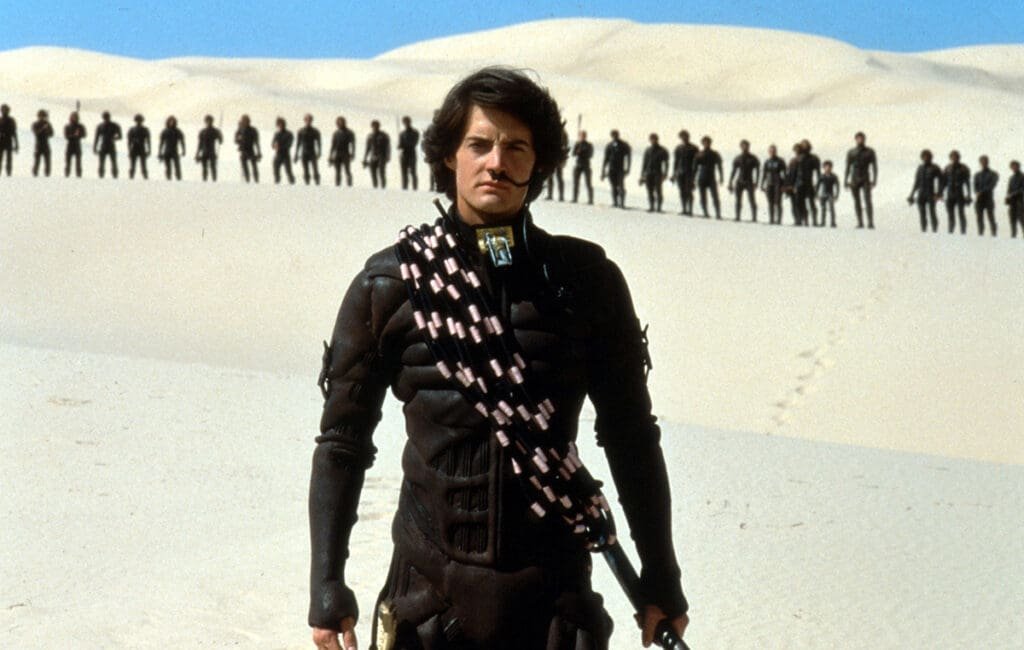
Lynch’s Dune
David Lynch’s adaptation of Dune, while a commercial failure, introduced many to the world of Arrakis. Its blend of operatic grandeur and dystopian tension, though panned by critics, found a cult following for its bold artistic choices that were a sharp contrast to the safe, formulaic sci-fi of the time.

Villeneuve’s Vision
Denis Villeneuve’s Dune promises to be both a spectacle and a meditation, capitalizing on modern technology to bring to life the grandeur and subtlety of Herbert’s universe. With a star-studded cast and a director known for his penchant for the philosophical and the visual, this adaptation holds the potential to be the ultimate cinematic realization of Dune.
The Expanded Dune Universe
Frank Herbert’s original sextet of novels (and his unfinished seventh) laid down the groundwork of the Dune universe. However, the franchise continued to expand after his death, with works by other authors and creations beyond the written page.
The Prequel Series
Written by Herbert’s son Brian Herbert and co-author Kevin J. Anderson, the prequel series offers a detailed look into the events leading up to the original Dune novel. While some purists may criticize these additions, they have undeniably enriched the mythology of the series, adding layers to the ancestral backstories of characters like the Atreides and the Harkonnens.
The Interim Works
Between the prequels and sequels to the original series, various authors contributed to the Expanded Dune Universe, offering a diverse array of stories that flesh out the Dune experience. From encyclopedic companions to graphic novels, this extended universe has something for every fan to sink their teeth into.
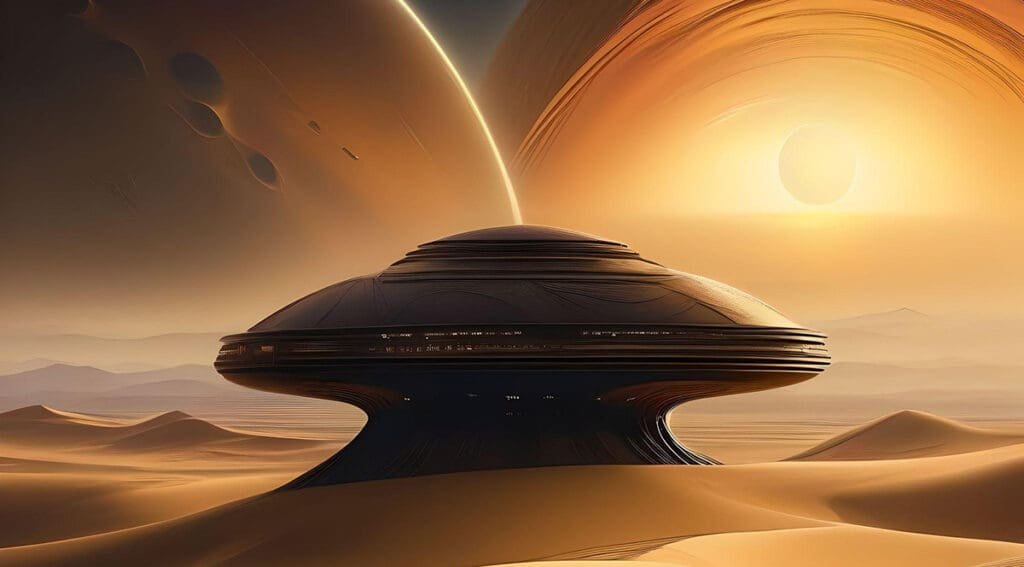
Final Thoughts: Dune in Modern Culture
With the impending release of the film and the big-budget series announced, Dune is poised to once again become a major force in popular culture. Its themes of ecological stewardship, religious fanaticism, and the struggle for freedom and identity are as resonant today as they were over fifty years ago.
A Timeless Classic
In an age of remakes and reboots, Dune stands out as both a timeless classic and a series ripe for reinterpretation. Its story is universal, its themes eternal, and its impact on popular culture indelible.
The Future of Dune
The future of Dune is as uncertain as the shifting sands of Arrakis. But one thing is clear: the saga of Paul Atreides and the desert planet that shaped his destiny will continue to inspire, provoke, and entertain for generations to come.
In unraveling the epic of Dune, we have touched on only a fraction of the rich tapestry that is the Dune saga. Whether you are a veteran of the series or a newcomer to its world, the call to read, watch, and explore the complexities of the Dune universe is not to be taken lightly. After all, as the Fremen say, “He who controls the spice, controls the universe.” And in the case of Dune, the spice is the narrative gold that keeps us coming back for more.
Ready to dive deeper into the sci-fi?
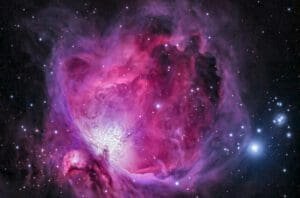 Explore more captivating content like this by checking out our blog post “Interstellar Love: A Cosmic Journey Through Sci-Fi Romance” Click HERE to continue your wicked journey.
Explore more captivating content like this by checking out our blog post “Interstellar Love: A Cosmic Journey Through Sci-Fi Romance” Click HERE to continue your wicked journey.


